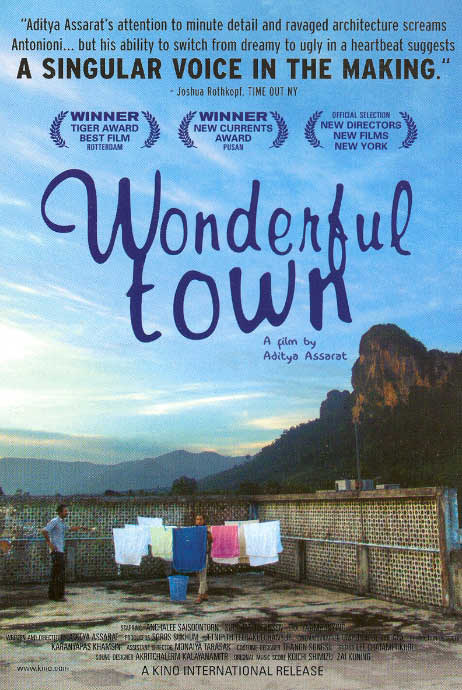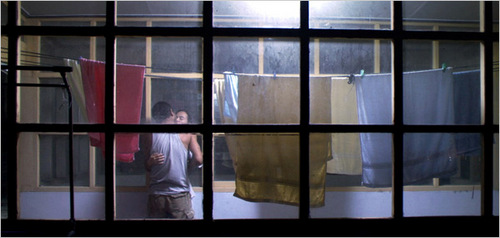

Currently, the Thai film industry is mired in a depressingly bleak state in which only low brow comedy, action, teenage romance and horror can compete in the local commercial market place. The industry is nearly devoid of thoughtful films for adults or for more adventurous movie goers. Only a few years back it seemed that Thai films were on the verge of a renaissance, but the lack of box office success of many of these “New Wave” films forced the big three movie production companies to become risk averse and grab on to proven genres. Some serious new Thai filmmakers have adapted to this reality by making smart artistic films within those genre walls - Banjong Pisanthanakul and Pakpoom Wongpoom with the two horror films SHUTTER and ALONE and Chukiat Sakveerakul with the psycho drama 13 BELOVED and the controversial teenage romance between two boys, LOVE OF SIAM. Pen-ek Ratanaruang is one of the few directors who have been able to disdainfully turn their backs on the local box office because of his international standing due to films like PLOY, INVISIBLE WAVES and LAST LIFE IN THE UNIVERSE. On the other hand, Wisit Sasanatieng, the director of the magnificently surreal Thai cowboy musical TEARS OF THE BLACK TIGER has been forced into genre servitude with his lackluster horror film, THE UNSEEABLE.

Barely noticeable within Thailand is a small independent film movement that primarily has had director Apichatpong Weerasethakul at its forefront. Films of his such as BLISSFULLY YOURS, TROPICAL MALADY and SYNDROMES AND A CENTURY have gained an art house following internationally, but little if any recognition or theatrical play at home. Now this new independent artistic vision has broken on to the international film scene with WONDERFUL TOWN. Produced partly by grants from the Pusan and the Rotterdam Film festivals as well as other foreign investors, this debut from Aditya Assarat has been picked up in the United States by Kino and has scored itself a one-week run at the Anthology Film Archives. It has garnered awards in a number of festivals and has received terrific reviews from The New York Times, The New York Post and Time Out NY. Deservedly so.

As the film opens, waves roll gently upon the shore but the irony of this and what it symbolizes only becomes apparent as the film progresses. Things are not always what they first appear. A few years earlier the nearby town was hit by the 2004 tsunami and claimed thousands of lives. The water has long receded but not the emotional damage it left behind. Melancholy lingers everywhere and as the camera evocatively captures this gloomy mood in the dark lush landscapes, the broken down moss covered buildings, the missing people and the rain heavy clouds, a certain haunted menace begins to creep into the narrative. Ton arrives from Bangkok to work as an architect on a construction site and he stays at a small plain hotel run by Na, a young woman with very little happening in her life. Ton asks her if there is a room available, not realizing the absurdity of his question - all the rooms are available and no other guests are ever witnessed – this seems to be a dying town. The two strike up a friendship of lonely souls that inevitably drifts into something more, but it plays out constantly against an ominous backdrop of threatening weather, gossiping neighbors and, eventually, bad intentions. The story moves at a lethargic, almost hypnotic pace, but it feels perfectly in rhythm with the stillness, the silence and the isolation that surrounds these two characters. It creates an uneasy, expectant feeling that stays with you as you walk out of the theater into the bright sunshine.
My rating for this film: 7.5
(written up 7/08)